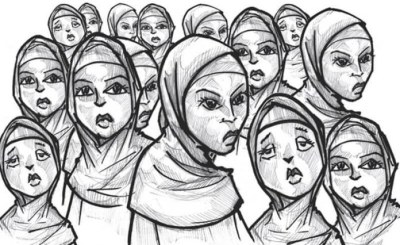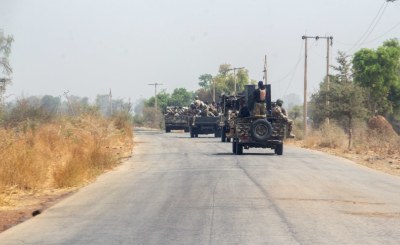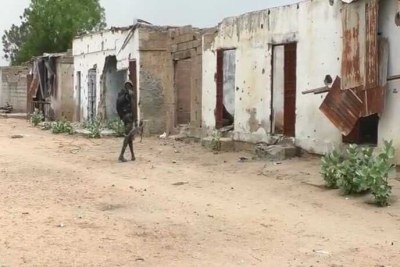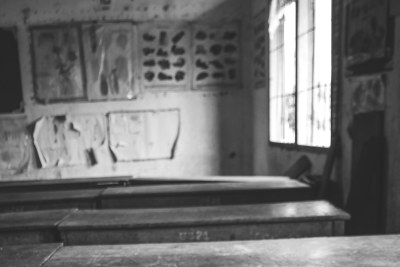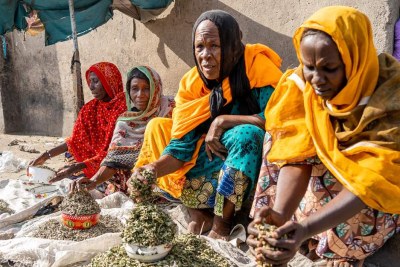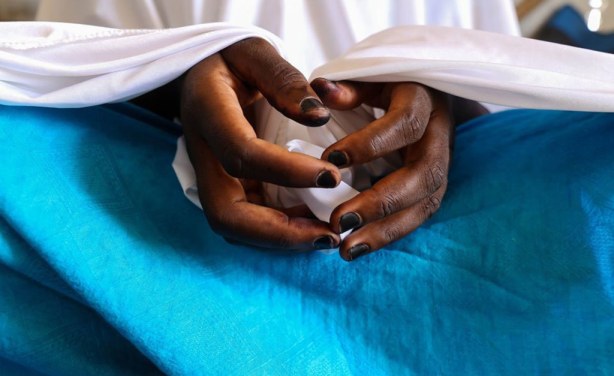-
Nigeria: Chibok Kidnappings - Why It's Important To Listen To The Survivors Of Boko Haram Terrorism
The Conversation Africa, 17 October 2022
In 2009 a once quiet local Salafi group called Boko Haram became increasingly violent in north-east Nigeria and border communities of Niger, Chad and Cameroon. Its quest to forbid… Read more »
-
Nigeria: 8 Years After, Chibok Leaders Lament Non-Rescue of 110 Schoolgirls
Leadership, 13 October 2022
The Kibaku Area Development Association (KADA) also known as Chibok Community has decried neglect of the over 100 schoolgirls abducted in 2014. Read more »
-
Nigeria: Freed Train Hostages - Our 100 Schoolgirls Abandoned, Chibok Community Cries Out
Leadership, 12 October 2022
The Chibok Community on the platform of Kibaku Area Development Association (KADA), has decried what it called neglect of the over 100 schoolgirls abducted from Government Girls… Read more »
-
Nigeria: Nigerian Troops Capture 79 Terrorists, Collaborators, Rescue Two Chibok Girls
Premium Times, 6 October 2022
The terrorists and their collaborators were arrested in the North-east region in the last two weeks. Read more »
Why It's Important To Listen To Survivors of Boko Haram Attacks
Testimonial narratives have enabled other stories, experiences, and voices to emerge. The violence inflicted by Boko Haram terror, cuts beyond the Chibok case and crosses gender lines, writes Chijioke K Onah for The Conversation.
Nigerian novelist and journalist Adaobi Tricia Nwaubani, claims that the excessive focus on the Chibok girls, to the detriment of other stories from children, men, and women, was "a mistake". She argues that is is "only through a robust engagement with the tragedy of terrorism in northern Nigeria that we can learn how best to confront it meaningfully".
Nwaubani strives to achieve this complexity in her acclaimed novel, Buried Beneath the Baobab Tree. The novel also undoes the easy gender binary constructed by the #BringBackOurGirls campaigners, as Boko Haram also murdered boys and men, while kidnapping girls and women. The women also allude to the trauma of witnessing such gruesome murders and the challenge of survival in the absence of their fathers, husbands, brothers, teachers, and community leaders in their patriarchal society. Yet this has been scarcely acknowledged. #BringBackOurGirls shows a need for a better understanding of the delicate situation in these communities.
The abduction of 276 girls from Chibok in Borno State, by Boko Haram militants on April 14, 2014 sparked a global outcry that gave rise to the #BringBackOurGirls campaign. Many years of interventions by the army and the government saw the release of a number of the girls - but not everyone was freed.
InFocus
-
President Muhammadu Buhari has said that the Boko Haram insurgency has neither religious nor ethnic underpinning, and with adequate education, the majority of Nigerians now k Read more »
-
April 14 marks eight years since 279 schoolgirls were taken by the armed group Boko Haram in Chibok. Some escaped, and others were later released, following intense campaigni Read more »
-
New research by Amnesty International has revealed that Boko Haram militants targeted women and girls for rape and other sexual violence - amounting to war crimes- during ... Read more »
